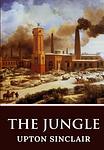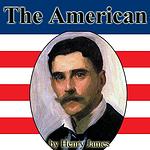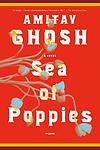The Greatest "Historical fiction, Social sciences" Books of All Time
Click to learn how this list is calculated.
This list represents a comprehensive and trusted collection of the greatest books. Developed through a specialized algorithm, it brings together 300 'best of' book lists to form a definitive guide to the world's most acclaimed books. For those interested in how these books are chosen, additional details can be found on the rankings page.
Genres
Historical fiction is a genre of literature that combines fictional stories with real historical events, settings, and characters. These books often take place in a specific time period and are based on research and factual information, but also include imaginative elements to create a compelling narrative. Historical fiction allows readers to experience the past in a unique and engaging way, while also providing insight into the social, cultural, and political issues of the time.
Social sciences is a broad category of books that encompasses the study of human society and social relationships. This includes disciplines such as sociology, psychology, anthropology, economics, political science, and history. Social science books aim to understand and explain human behavior, social structures, and cultural norms. They explore topics such as social inequality, power dynamics, social change, and the impact of technology on society. Social science books provide valuable insights into the complexities of human interactions and offer a deeper understanding of the world we live in.
Countries
Date Range
Reading Statistics
Click the button below to see how many of these books you've read!
Download
If you're interested in downloading this list as a CSV file for use in a spreadsheet application, you can easily do so by clicking the button below. Please note that to ensure a manageable file size and faster download, the CSV will include details for only the first 500 books.
Download-
1. The Jungle by Upton Sinclair
This novel exposes the harsh conditions and exploited lives of immigrants in the United States in Chicago and similar industrialized cities. The protagonist, a young Lithuanian immigrant, works in the meatpacking industry and experiences the extreme poverty, poor working conditions, and lack of social services. The narrative explores the corruption of the American meatpacking industry in the early 20th century and the hardships faced by the working class, leading to significant public outcry that contributed to the passage of the Pure Food and Drug Act.
-
2. The Go-Between by L. P. Hartley
Set in the summer of 1900, the novel follows a young boy who visits a friend's family estate and becomes an unwitting messenger in an illicit affair between his friend's older sister and a local farmer. As the boy navigates the complexities of the adult world and the rigid class system of the time, he experiences a loss of innocence that has lasting effects on his life. The narrative explores themes of nostalgia, memory, and the corrupting power of class and wealth.
-
3. The Underdogs by Mariano Azuela
"The Underdogs" is a novel set during the Mexican Revolution, depicting the conflict from the perspective of the peasants who fought in it. The story follows the journey of a poor, illiterate Indian named Demetrio Macias, who becomes a reluctant leader in the rebellion against the federal government. The narrative explores the brutality and chaos of war, the corruption of power, and the often futile nature of rebellion, painting a grim picture of the human cost of revolution.
-
4. Los lanzallamas by Roberto Arlt
"Los lanzallamas" is a novel set in Buenos Aires in the 1920s, revolving around the lives of a group of characters who are marginalized by society. The protagonist, a failed inventor turned anarchist, is manipulated into participating in a plot to overthrow the government and establish a new social order. The plot fails, leading to tragic consequences for the characters involved. The novel explores themes of alienation, disillusionment, and the struggle for individual freedom in a repressive society.
-
5. The American by Henry James
"The American" is a novel about a wealthy, self-made American businessman who travels to Europe to find a wife. Despite his wealth and good nature, he struggles to navigate the complex and often hypocritical aristocratic society. His pursuit of a beautiful, young countess is met with resistance from her family due to his lack of noble lineage. The story showcases the clash between the New World's merit-based society and the Old World's class-based society.
-
6. Max Havelaar by Multatuli
"Max Havelaar" is a novel centered around a Dutch civil servant who is stationed in the Dutch East Indies (now Indonesia) during the mid-19th century. The protagonist, trying to battle the corruption and exploitation of the local people by Dutch colonial rulers, becomes disillusioned with the system. The novel provides a scathing critique of the colonial regime's treatment of the indigenous people, highlighting their suffering and exploitation. The author uses various narrative techniques and perspectives, making it a significant work in Dutch literature.
-
7. Compassion by Benito Pérez Galdós
"Compassion" is a compelling narrative that explores the themes of poverty, compassion, and human morality. Set in 19th-century Spain, it follows the story of a wealthy woman who, after an encounter with a poor, blind beggar, is moved to reassess her life and the societal norms of the time. This chance meeting prompts her to question the established social order and her privileged position within it, leading to a profound personal transformation. This novel is a poignant exploration of human empathy and the societal structures that often hinder its expression.
-
8. Death in Rome by Wolfgang Koeppen
"Death in Rome" is a post-World War II novel that explores the lives of a German family, their friends, and associates during a reunion in Rome. Each character is representative of a different aspect of German society, and their interactions and experiences in the city serve as a commentary on the nation's struggle to come to terms with its recent past. The book also explores the themes of guilt, denial, and the lingering effects of war.
-
9. Deep Rivers by José María Arguedas
"Deep Rivers" is a novel that follows the life of a young boy who is caught between the Spanish and indigenous cultures of Peru. The protagonist is sent to a Catholic boarding school, where he experiences the harsh realities of social and racial divisions within the country. As he navigates these challenging circumstances, he develops a deep connection with the indigenous Andean culture and its spiritual relationship with nature. The novel is a profound exploration of identity, culture, and the struggle of indigenous peoples in a colonized society.
-
10. Ancestral Voices by Etienne van Heerden
"Ancestral Voices" is a haunting novel set in South Africa during the apartheid era. The story follows a young boy who grows up in a small rural town, navigating a complex web of familial relationships and secrets. As he matures, he becomes increasingly aware of the racial and social injustices that surround him. The book explores themes of identity, heritage, and the harsh realities of life under apartheid, all weaved together with a deep sense of the mystical and the supernatural.
-
11. Sea of Poppies by Amitav Ghosh
"Sea of Poppies" is a historical novel set in the 1830s, just before the Opium Wars. It traces the intertwined lives of a diverse group of characters, from a raja turned convict, a widowed poppy grower, a French orphan, to a mulatto American freedman, all of whom are brought together on the Ibis, a former slave ship now used for transporting opium. The story explores the social and economic impact of the opium trade, colonialism, and the caste system, while also delving into the personal histories, relationships, and struggles of the characters.
-
12. Autobiography of an Ex-Colored Man by James Weldon Johnson
The book is a fictional autobiography of a biracial man living in post-Reconstruction America. The protagonist, who is born to a white father and black mother, initially embraces his black heritage and becomes a successful ragtime musician. However, after witnessing a brutal racial attack, he decides to pass as white to avoid racial prejudice. Despite his financial success and comfortable life in white society, he struggles with his decision to deny his African-American heritage.
Reading Statistics
Click the button below to see how many of these books you've read!
Download
If you're interested in downloading this list as a CSV file for use in a spreadsheet application, you can easily do so by clicking the button below. Please note that to ensure a manageable file size and faster download, the CSV will include details for only the first 500 books.
Download










